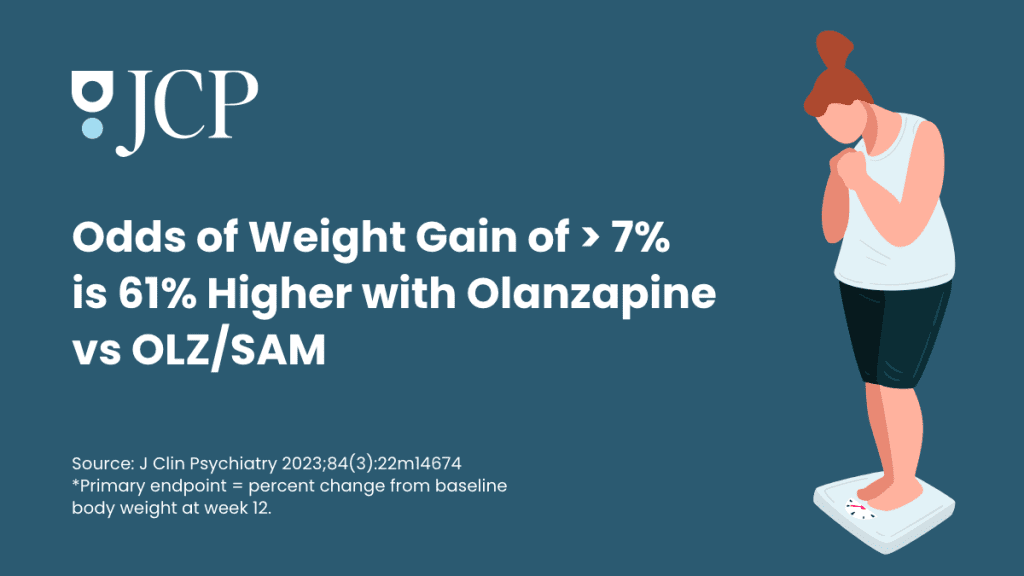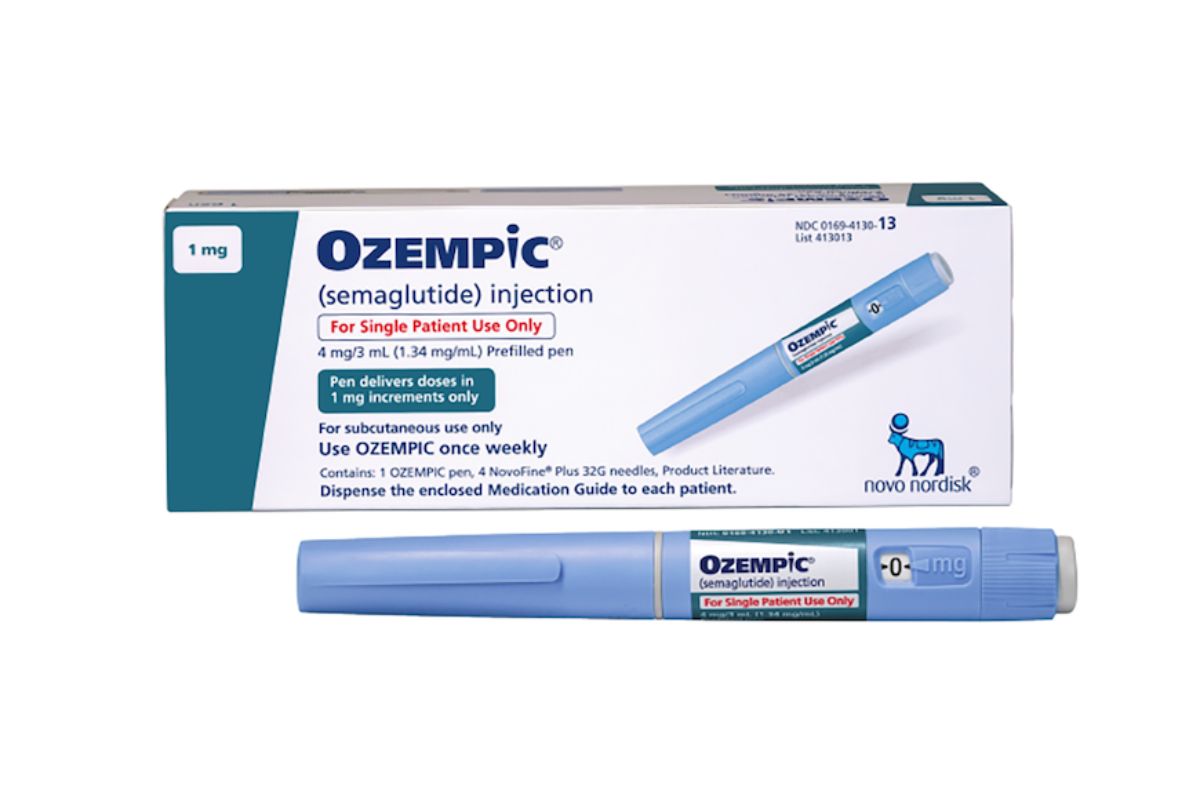Olanzapine is used to successfully treat schizophrenia and other mood disorders. But despite its effectiveness, patients often despair over massive weight gain when they take the drug.
Antipsychotic-associated weight gain is currently a hot topic in psychiatry. Several studies in recent weeks have addressed the phenomenon. Michel Sabé, MD, an author of a study on the Comparative Effects of 11 Antipsychotics on Weight Gain, told Psychiatrist.com, “Indeed, weight gain is one of the most problematic issues for patients with serious mental illness…prevention strategies should be organized along with the introduction of antipsychotics.”
Now, a brand new The Journal of Clinical Psychiatry investigation suggests a way to mitigate this unwanted side effect by switching up treatment.
The ENLIGHTEN-Early study followed more than 400 patients who met the criteria for a primary diagnosis of schizophrenia, schizophreniform disorder, or bipolar disorder I (BD-I.) Eligible patients were randomly assigned to receive either olanzapine alone or a combination of olanzapine and samidorphan known as OLZ/SAM.
11 Antipsychotics and Their Impact on Weight Gain
Antipsychotic-Related Weight Gain and Adherence
Emerging Treatments in Schizophrenia
All subjects were early on in their diagnosis and had limited exposure to antipsychotics prior to the study. And they were all given a similar amount of olanzapine as part of their regimen.
Clear differences emerged after 12 weeks of treatment. The OLZ/SAM group gained an average of 4.91 percent and the olanzapine group gained an average of 6.77 percent of their baseline body weight.
Compared to olanzapine, OLZ/SAM offered 39 percent lower odds of patients gaining at least 7 percent additional weight. This was statistically significant, the researchers said. The combo group also had fewer patients who gained 10 percent or more of their weight – 21 percent versus 36 percent. However the data did not find this comparison statistically significant.

The study looked at changes in other metabolic measurements as well. For participants in both groups, triglycerides, total cholesterol, and LDL cholesterol increased. HDL cholesterol decreased. While blood glucose and insulin levels increased, HbA1c levels remained steady for all subjects. Most metabolic changes occurred within the first 2 weeks of treatment, according to the study authors.
As for antipsychotic efficacy, it was comparable across the board, regardless of stage of illness or prior antipsychotic treatment. And in terms of safety, about 63 percent of participants reported an adverse event. Besides the extra pounds, their biggest complaint was excessive sleepiness. But very few subjects left the study as a result of any side effects.
Although not recommended as a first-line treatment for early-stage illness, clinicians sometimes still use olanzapine to manage mood disorder symptoms. Based on these findings, the researchers suggested that an OLZ/SAM protocol might be the better way to go, especially for patients early in their diagnosis.



